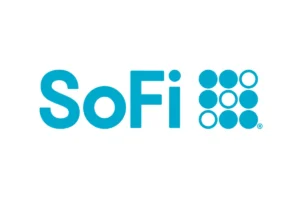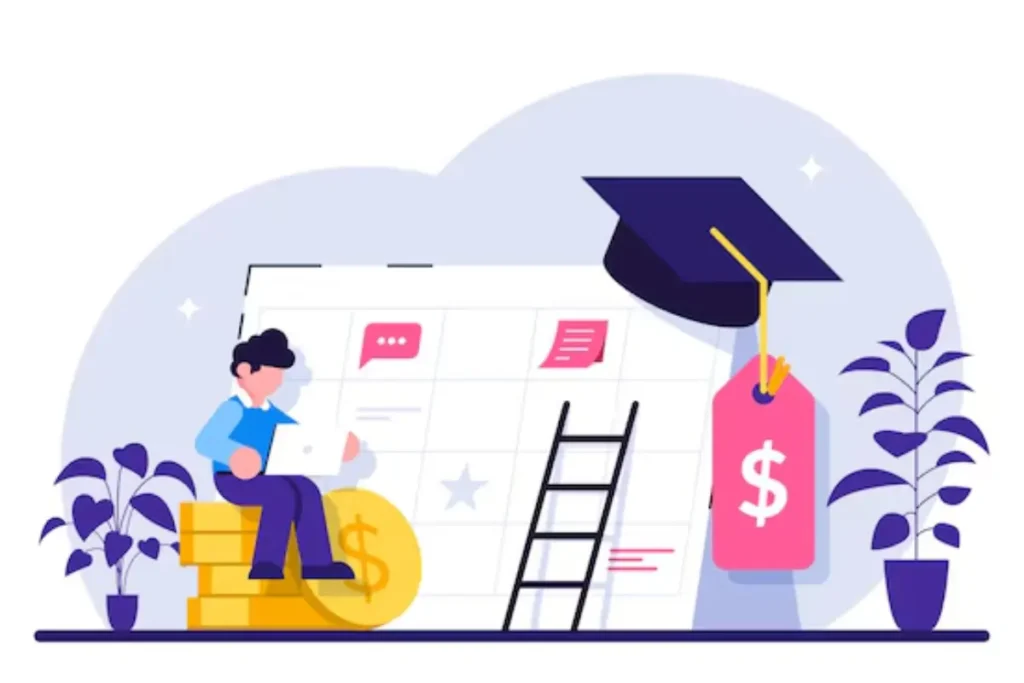Student loans are a crucial financial tool for many aspiring college students and graduates. While they come with responsibilities and potential drawbacks, they also offer numerous advantages that can pave the way for a brighter future. In this comprehensive guide, we’ll delve into the key benefits of student loans, explore different types of loans, and provide tips for responsible borrowing.
Why Consider Student Loans?
The cost of higher education has been steadily rising, making it increasingly challenging for students and families to afford tuition, fees, and living expenses. Student loans can bridge the financial gap, enabling students to pursue their educational dreams and unlock career opportunities.
While scholarships, grants, and savings are ideal sources of funding, they often fall short of covering the full cost of college. Student loans offer a viable solution, providing access to necessary funds and allowing students to focus on their studies without the burden of immediate financial strain.
Types of Student Loans
There are two main types of student loans:
- Federal Student Loans: These loans are offered by the U.S. government and typically have lower interest rates, more flexible repayment options, and additional benefits like income-driven repayment plans and potential loan forgiveness.
- Private Student Loans: These loans are offered by private lenders like banks, credit unions, and online lenders. They often have higher interest rates and stricter repayment terms than federal loans, but may be a good option for borrowers who have exhausted their federal loan options.
Advantages of Student Loans: Investing in Your Future
Student loans offer a wide range of benefits that can significantly impact your life, both during your academic journey and long after graduation. Let’s explore these advantages in more detail:
- Access to Higher Education:
Student loans open doors to higher education for students from all socioeconomic backgrounds. They make it possible for students to attend colleges and universities that might otherwise be financially out of reach. This access can lead to numerous opportunities, including:
- Personal Growth: College provides a platform for personal development, critical thinking, and expanding your worldview.
- Career Advancement: A college degree can lead to better job prospects and higher earning potential.
- Networking Opportunities: College campuses offer valuable networking opportunities with professors, alumni, and peers that can be beneficial throughout your career.
- Investment in Your Future:
A college education is an investment in yourself, your skills, and your future. While the upfront costs may seem daunting, student loans allow you to invest in your education today and reap the rewards for years to come. A college degree can lead to:
- Higher Earning Potential: Studies show that college graduates earn significantly more over their lifetime than those with only a high school diploma.
- Enhanced Career Opportunities: A degree can open doors to a wider range of career options and advancement opportunities.
- Personal Fulfillment: Achieving your educational goals can bring a sense of personal accomplishment and satisfaction.
- Improved Job Prospects:
In today’s competitive job market, a college degree is often a minimum requirement for many positions. Graduates generally enjoy:
- Lower Unemployment Rates: The unemployment rate for college graduates is consistently lower than that of those without a degree.
- Higher Starting Salaries: Employers often offer higher starting salaries to college graduates.
- Increased Job Security: College graduates tend to have more job security and are less likely to be laid off during economic downturns.
- Building Credit History:
Responsible repayment of your student loans can be an excellent way to establish and build a positive credit history. A good credit history is crucial for various financial milestones, such as:
- Qualifying for Loans and Credit Cards: A good credit score will make it easier to qualify for loans with lower interest rates, credit cards with better rewards, and even rental agreements.
- Lower Insurance Premiums: Your credit score can affect your insurance premiums, with those with good credit often receiving lower rates.
- Better Financial Opportunities: A strong credit history can open doors to better financial opportunities overall, such as securing a mortgage with favorable terms.
- Flexible Repayment Options:
Federal student loans offer various repayment plans to suit different financial situations:
- Standard Repayment Plan: This plan involves fixed monthly payments over a 10-year period.
- Graduated Repayment Plan: Payments start lower and gradually increase over time.
- Extended Repayment Plan: Payments are spread out over a longer period, typically 25 years.
- Income-Driven Repayment (IDR) Plans: Payments are based on your income and family size and may be as low as $0 per month. You can explore available IDR plans on the Federal Student Aid website: https://studentaid.gov/manage-loans/repayment/plans
- Potential for Loan Forgiveness:
Certain federal student loan borrowers may beeligible for loan forgiveness have made 120 qualifying monthly payments under a qualifying repayment plan while working full-time for a qualifying employer.
- Teacher Loan Forgiveness: Provides up to $17,500 in forgiveness for teachers who have worked full-time for five complete and consecutive academic years in a low-income school or educational service agency.
- Other Forgiveness Programs: There are other forgiveness programs available for specific professions, such as nurses, military personnel, and lawyers.
For more information on federal student loan forgiveness programs, visit the Federal Student Aid website: https://studentaid.gov/manage-loans/forgiveness-cancellation
It’s important to note that private student loans typically don’t offer loan forgiveness.
By understanding the advantages of student loans and borrowing responsibly, you can make informed decisions about financing your education and pave the way for a successful future.
Potential Drawbacks

While student loans offer significant benefits, it’s important to be aware of the potential drawbacks:
- Debt Burden: Student loan debt can be substantial, and it can take years or even decades to repay.
- Interest Accrual: Interest accumulates on your loan balance, increasing the total amount you owe over time.
- Impact on Financial Decisions: Student loan debt can affect your ability to save for a down payment on a house, invest for retirement, or pursue other financial goals.
Tips for Responsible Borrowing
To make the most of your student loans and minimize potential drawbacks, follow these tips:
- Borrow Only What You Need: Carefully consider your educational expenses and borrow only the amount necessary to cover them.
- Explore Scholarships and Grants: Prioritize free money options like scholarships and grants before taking out loans.
- Compare Interest Rates: Shop around and compare interest rates from different lenders to find the best deals.
- Understand Repayment Terms: Familiarize yourself with the repayment terms and options available for your loans.
- Make Timely Payments: Pay your loan payments on time to avoid late fees and negative impacts on your credit score.
- Consider Refinancing or Consolidation: If you have multiple loans with high interest rates, refinancing or consolidation may help you lower your monthly payments and save money on interest.
Frequently Asked Questions
Q: Who is eligible for federal student loans?
A: To be eligible for federal student loans, you must be a U.S. citizen or eligible noncitizen, have a valid Social Security number, be enrolled in an eligible degree or certificate program at least half-time, maintain satisfactory academic progress, and meet other eligibility requirements.
Q: How much can I borrow in student loans?
A: The maximum amount you can borrow in federal student loans depends on your year in school, dependency status, and the type of loan. For private student loans, the amount you can borrow will vary depending on the lender and your creditworthiness.
Q: What is the interest rate on student loans?
A: Interest rates on student loans vary depending on the type of loan, the lender, and the borrower’s creditworthiness. Federal student loan interest rates are fixed and set by the government each year. Private student loan interest rates can be fixed or variable and are determined by the lender.
Q: When do I have to start repaying my student loans?
A: Most federal student loans have a six-month grace period after you graduate, leave school, or drop below half-time enrollment before you have to start making payments. However, interest will continue to accrue during the grace period. Private student loans may have different repayment terms.
Read more:
- Debt Consolidation Loans 2024: Your Path to Financial Freedom

- SoFi Personal Loan Reviews 2024: An In-Depth Look for Borrowers

- Home Equity Line of Credit (HELOC): Your Comprehensive Guide

Student Loan Comparison Table
| Feature | Federal Student Loans | Private Student Loans |
|---|---|---|
| Interest Rates | Fixed, set by the government | Fixed or variable, determined by the lender |
| Repayment Options | Income-driven repayment plans, deferment, forbearance | May offer deferment or forbearance, but fewer repayment options |
| Loan Forgiveness | Available for certain borrowers, such as those in public service | Generally not available |
| Credit Requirements | No credit check required for most federal loans | Requires good credit history or a cosigner |
| Borrower Benefits | Loan forgiveness, income-driven repayment plans, deferment, forbearance, etc. | May offer autopay discounts or other perks, but fewer benefits compared to federal loans |
Navigating Student Loans for a Brighter Future
Student loans are a powerful tool for opening doors to educational opportunities and career advancement. While they do come with responsibilities and potential drawbacks, the benefits can significantly outweigh the risks when approached with careful consideration and responsible borrowing habits.
By understanding the different types of student loans available, weighing the advantages against potential drawbacks, and following tips for responsible borrowing, you can make informed decisions about financing your education.
Remember, student loans are not a one-size-fits-all solution. It’s essential to assess your individual needs, financial situation, and career goals before deciding whether to borrow. By exploring all available options, such as scholarships, grants, and work-study programs, you can minimize your reliance on loans and reduce your debt burden.
Whether you’re a high school student planning for college or a graduate navigating repayment, a well-informed approach to student loans can pave the way for a successful and financially secure future. Invest in your education, borrow wisely, and reap the rewards of your hard work and dedication.
Important Considerations:
- Before taking out any loans, thoroughly research your options and compare interest rates, terms, and repayment plans.
- Consider the potential impact of student loan debt on your future financial goals.
- Create a budget and track your expenses to ensure you can afford your loan payments.
- Communicate with your lender if you have any questions or concerns about your loans.
- Explore loan forgiveness programs if you work in public service or other eligible fields.
Remember, student loans can be a valuable investment in your future, but it’s essential to use them wisely and responsibly. By doing so, you can achieve your educational dreams and set yourself up for a successful and rewarding career.



